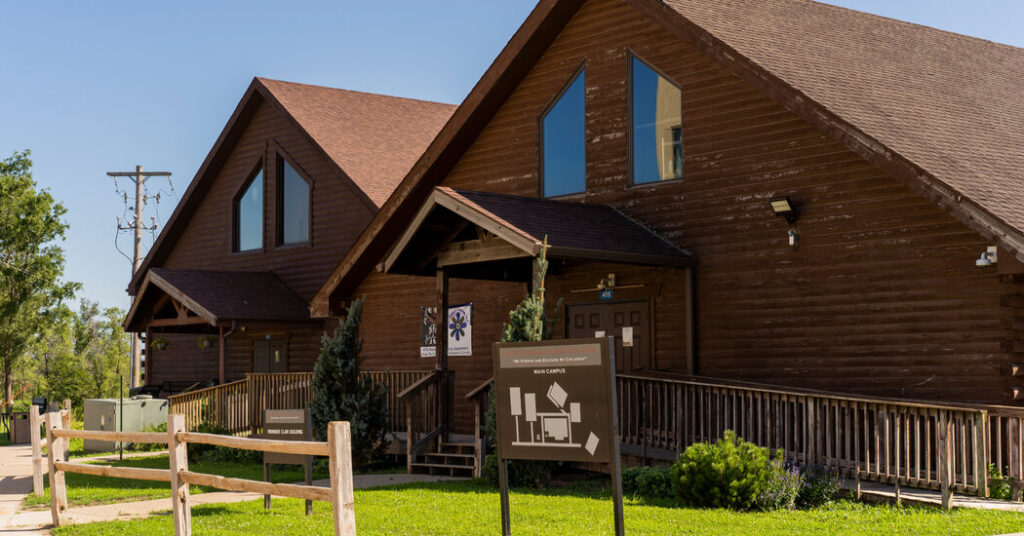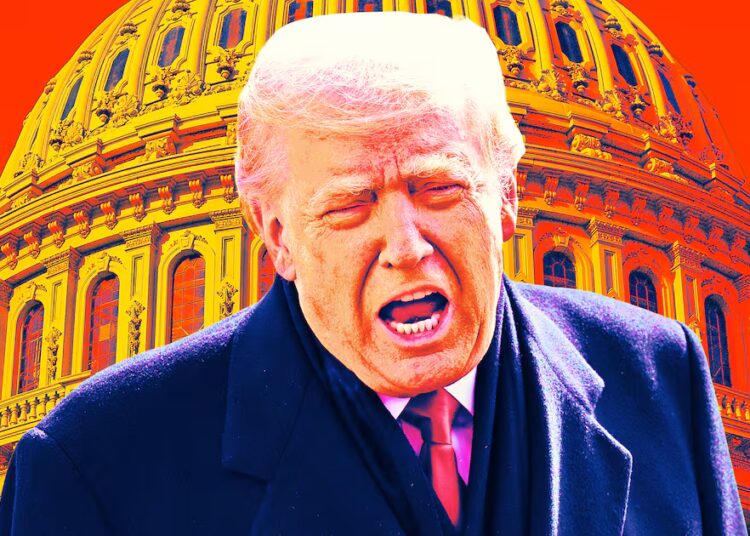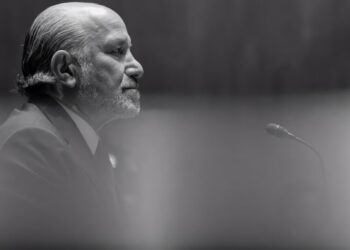The philanthropist MacKenzie Scott is funneling tens of millions of dollars into tribal higher education, months after the Trump administration sought to cut one of the system’s most essential funding sources.
The donations could help shield some tribal schools — which measure their reserve funds and endowments at best in the low millions, not billions — and their students from budget bickering in Washington. Ms. Scott has not made public comments about her recent gifts, but according to the recipients, the funds will support at least one tribal school and a nonprofit group that focuses on scholarships for Native American students.
Little Priest Tribal College, in Winnebago, Neb., announced on Thursday that Ms. Scott had given it $5 million. The school learned of the gift as it was planning a capital campaign that, officials hoped, might raise $10 million over a decade.
“There’s a sense of happiness, a sense of hope,” Manoj Patil, the college’s president, said in an interview. He said of Ms. Scott, “She’s given us hope, hope for success, hope to dream big.”
Mr. Patil said the college, which has 258 students and has been planning a new facility for trade programs, would use the money to expand its tidy campus near the state line with Iowa.
In September, the Native Forward Scholars Fund said Ms. Scott had given it $50 million as it faced a 35 percent increase this year in scholarship requests.
It is not clear how much more Ms. Scott, the former wife of the tech billionaire Jeff Bezos, intends to give for tribal education. She has already steered more than $700 million this year to historically Black colleges and universities, but details about those contributions have emerged only in fits and starts. Ms. Scott, who keeps such a low profile that her philanthropy operation’s website says that it chooses “not to participate in events or media stories,” has not released details of her giving for 2025.
Ms. Scott’s donations are coming only a few months after tribal education officials and their allies on Capitol Hill essentially fended off a White House recommendation to pare the Bureau of Indian Education’s budget by 83 percent. The episode stirred deep fears on Native American reservations about the financial future of the tribal education system.
That system, stitched together across generations through laws and treaties, relies enormously on financial support from the federal government, which has never directed as much money to the schools as the law promises.
This year, the Trump administration proposed a budget of $22 million for the Bureau of Indian Education. The bureau’s budget — which was $183 million in the last fiscal year — goes toward operating Haskell Indian Nations University in Kansas and Southwestern Indian Polytechnic Institute in New Mexico, and to underwriting 35 tribally controlled colleges.
The federal government also directs money to tribal schools through other programs, and the Trump administration surprised academic leaders in September with a plan to double the Education Department’s contribution. But the mixed signals have left tribal education officials feeling vulnerable to Washington’s whims.
Ms. Scott has given to tribal colleges and groups associated with education for Native people in the past. Mr. Patil said that one of Ms. Scott’s representatives declined to detail the reasoning for the gift to Little Priest. But in a rare essay in October, Ms. Scott cited a 25-year-old prophecy from elders of the Hopi Nation that concluded, “We are the ones we’ve been waiting for.”
Alan Blinder is a national correspondent for The Times, covering education.
The post MacKenzie Scott Expands Giving Spree to Tribal Colleges appeared first on New York Times.




